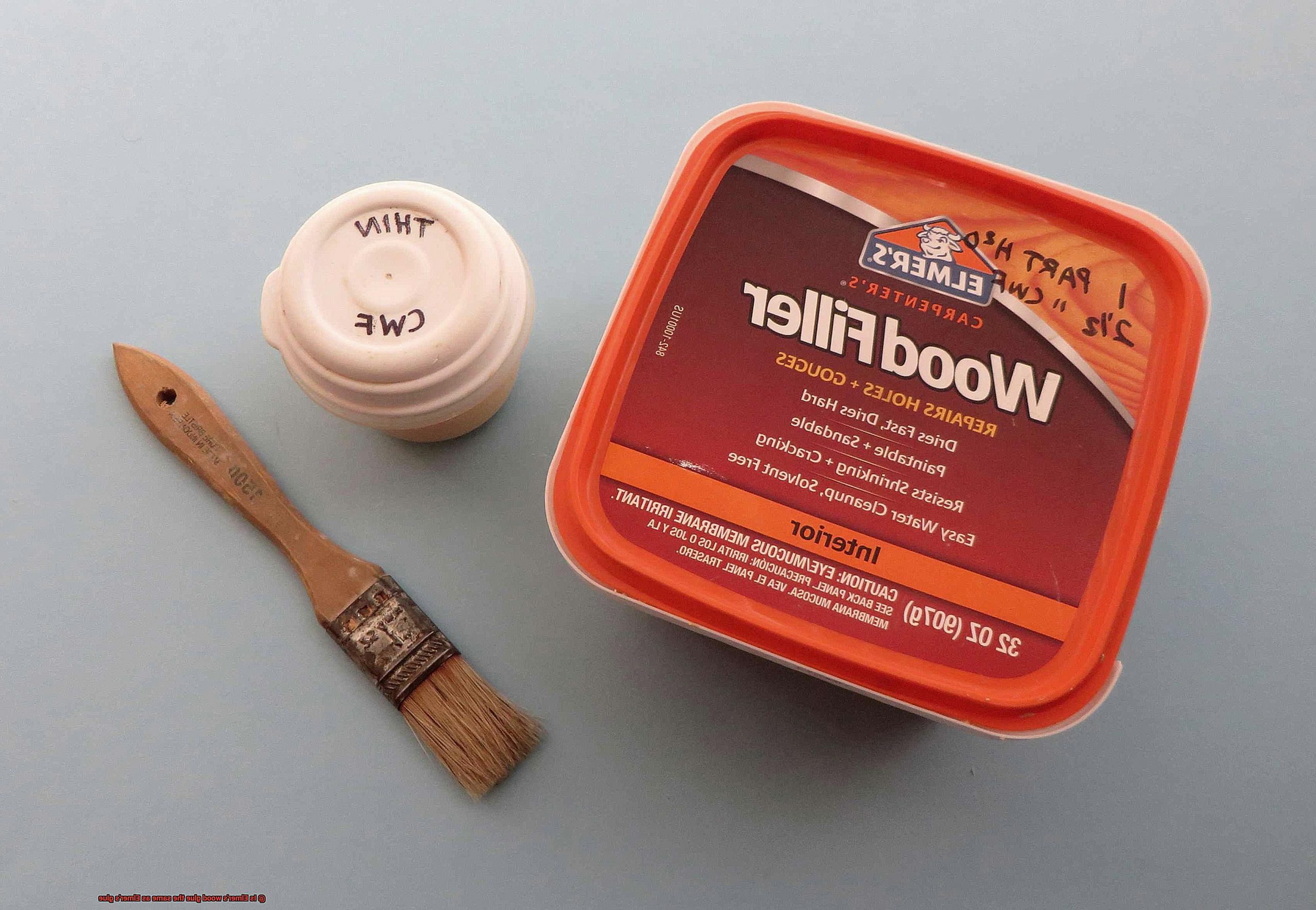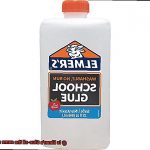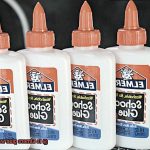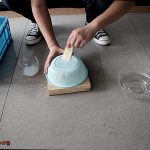Are you a DIY enthusiast or an artistic crafter in search of the ideal glue to finish your project? Are you perplexed about whether Elmer’s wood glue is the same as Elmer’s glue? Don’t worry; you’re not alone. Many people find it challenging to differentiate between these two products.
Elmer’s glue has been a household name for decades, thanks to its versatility and exceptional bonding qualities. It’s a go-to adhesive for various arts and crafts projects, including paper crafts, school projects, and even slime making. However, with several types of Elmer’s glue available in the market, it can be confusing, particularly for those new to the crafting scene.
In this blog post, we’ll explore the two types of Elmer’s glue and help you determine whether Elmer’s wood glue is the same as Elmer’s glue. We’ll delve into their composition differences, bonding strengths, and recommended applications for each type of glue. So if you want to choose the perfect adhesive for your next project, stick with us as we unravel the mysteries surrounding Elmer’s wood glue and Elmer’s glue.
What is Elmer’s Wood Glue?
Contents
This specialized adhesive is designed to bond wood to wood, providing a strong and lasting hold that can withstand even the toughest conditions.
One of the standout features of Elmer’s Wood Glue is its waterproof formula, making it an ideal choice for outdoor furniture or any project that may be exposed to moisture. Additionally, it has a longer working time than other types of wood glue, allowing you to make adjustments before the glue sets.
Elmer’s Wood Glue comes in several variations, each formulated to meet specific needs and requirements. Whether you need extra strength or an interior/exterior option, there is a product that will work for you. Plus, with its easy application process, the glue dries clear and can be sanded, painted, or stained once cured. This means that it won’t leave any unsightly residue or marks on your finished project.
It’s important to note that Elmer’s Wood Glue is not the same as the company’s school glue. While both products share some similarities in packaging and branding, they are formulated for different purposes. Using the correct adhesive for each project is essential to achieving optimal results.
What is Elmer’s Glue?
Elmer’s Glue has been a household name for over 70 years, and it’s no surprise why. This water-based adhesive is a reliable, versatile, and accessible choice for countless projects. From paper to cardboard, fabric to wood, Elmer’s Glue can handle it all.
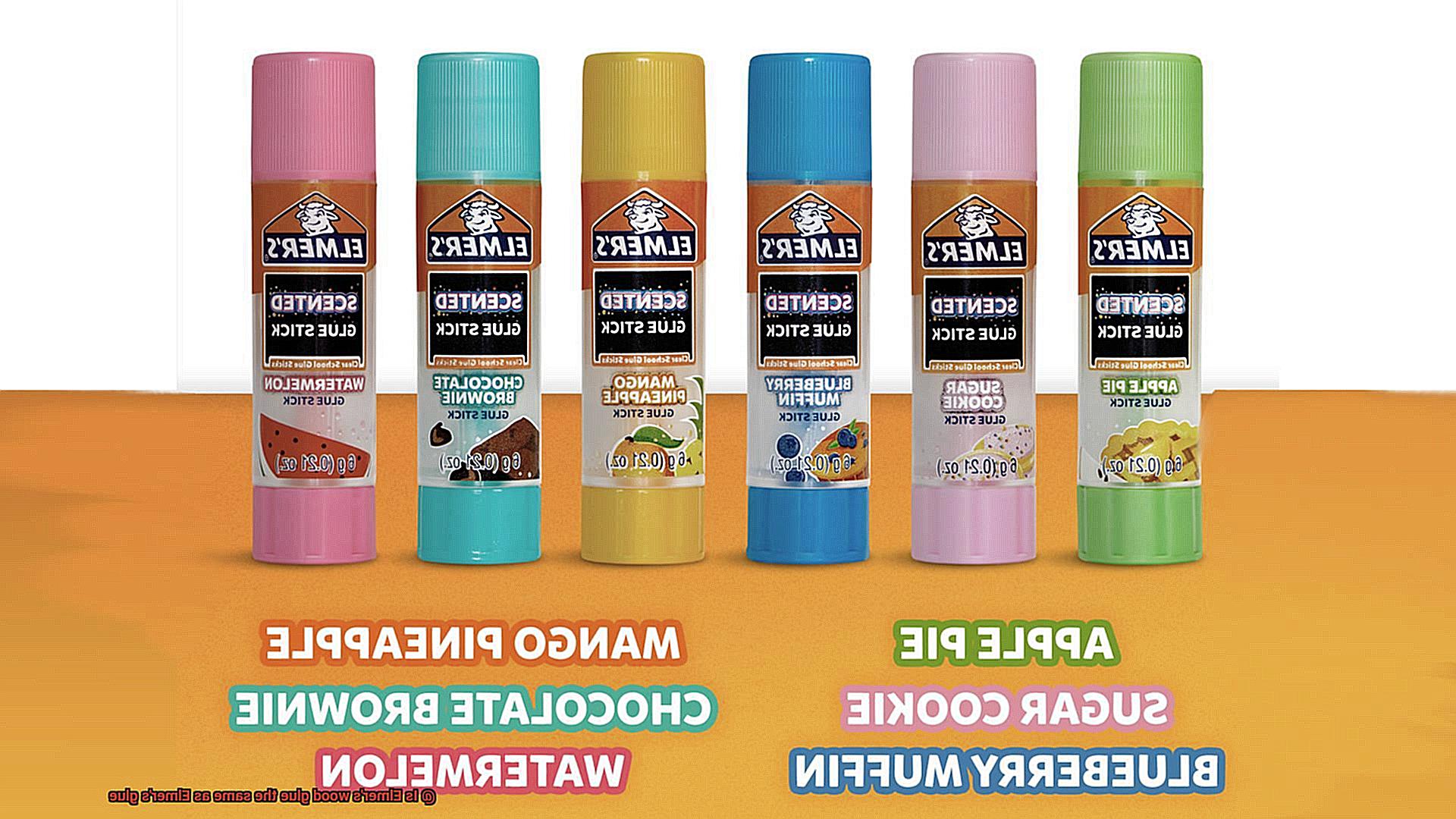
One of the standout features of Elmer’s Glue is its clear and non-toxic formula. This makes it an ideal choice for classrooms, homes, and offices where safety is a top priority. And if things get a little messy during crafting time, Elmer’s Glue can be easily cleaned up with water and soap.
Variety is the spice of life, and Elmer’s Glue does not disappoint in this regard. There are different types of Elmer’s Glue available to suit specific needs. For example, school glue is perfect for art projects or science experiments. Clear glue is great for projects that require transparency, while glitter glue adds a touch of sparkle to any project. And let’s not forget about washable glue – perfect for little ones who love to get their hands dirty.
For those working on wood surfaces, Elmer’s Wood Glue is the answer. This specialized glue is made from a mixture of polyvinyl acetate (PVA) and water. PVA creates a strong bond between wood surfaces, ensuring that pieces stay securely together.
Differences Between Elmer’s Wood Glue and Elmer’s Glue
Elmer’s Wood Glue is specifically formulated for woodworking projects. Its strong adhesive properties make it more durable and able to withstand the stress that comes with woodworking. Plus, it dries clear, ensuring a clean finish that won’t detract from the beauty of your project.
On the other hand, regular Elmer’s Glue is a versatile adhesive that can be used for paper crafts, school projects, and general household repairs. While it may not be as strong as Elmer’s Wood Glue, it still provides a reliable bond for most everyday projects.
One of the key differences between these two products is their drying time. Elmer’s Wood Glue takes longer to dry than regular Elmer’s Glue because it needs more time to set and fully bond with the wood. This makes it perfect for projects where strength is a priority, but not ideal for quick fixes. Regular Elmer’s Glue, on the other hand, dries faster and can be used for projects that require a speedy solution.
Both of these glues are easy to apply thanks to their squeeze bottle packaging, which allows for precise application and minimal mess. However, due to its thicker consistency, spreading Elmer’s Wood Glue evenly may require a bit more effort.
Benefits of Using Elmer’s Wood Glue for Woodworking Projects
And among all the options out there, Elmer’s Wood Glue stands out as a trusted and popular choice for good reason.
First and foremost, Elmer’s Wood Glue is known for its strong bonding properties that create a durable bond. This means you can trust that your furniture or other wooden objects will hold up over time, even with everyday wear and tear.
But what about versatility? Luckily, Elmer’s Wood Glue has got you covered there too. Whether you’re working with softwoods like pine or hardwoods like oak and mahogany, this glue works well on a variety of woods. So no matter what kind of woodworking project you have in mind, Elmer’s Wood Glue is up to the task.
And let’s talk about ease of use. With its thick consistency, Elmer’s Wood Glue is easy to apply evenly, ensuring that your project will turn out just how you envisioned it. Plus, it dries clear, so you don’t have to worry about unsightly glue marks ruining the finish. And if you do make a mistake, it cleans up easily with water while still wet.
Finally, let’s not forget about affordability. Compared to other adhesives on the market, Elmer’s Wood Glue won’t break the bank while still providing top-notch results. That makes it an accessible option for hobbyists and professionals alike.
Benefits of Using Elmer’s Glue for Arts and Crafts Projects
With its versatility and reliability, Elmer’s glue is an excellent choice for all kinds of projects. Here are just a few of the benefits of using Elmer’s glue:
Firstly, Elmer’s glue is incredibly easy to use. Whether you prefer traditional liquid glue, glue sticks, or transparent glue, Elmer’s glue can handle it all. It applies smoothly and dries quickly, making it ideal for both kids and adults.
Another significant benefit of using Elmer’s glue is that it’s non-toxic and safe for children to use. As a parent or teacher, you want to ensure that the products you use are safe for your children. Elmer’s glue is the perfect solution as it doesn’t contain any harmful chemicals or fumes.
Elmer’s glue is also washable, which makes it perfect for messy projects like slime-making or finger painting. You don’t have to worry about any spills or messes because all you need is soap and water to clean it up easily.
Furthermore, affordability is another advantage of Elmer’s glue. Whether you’re a professional artist or a budget-conscious parent, Elmer’s glue won’t break the bank. You can use it for all kinds of projects without worrying about the cost.
btdwmBgF1ps” >
Also Read: Is Elmer’s Glue Eco-Friendly?
Conclusion
To wrap things up, Elmer’s glue and Elmer’s wood glue may sound like they’re interchangeable, but they’re actually two distinct products. Sure, they both have the power to stick things together, but their compositions and bonding strengths are different.
Elmer’s glue is a water-based adhesive that’s ideal for paper crafts, school projects, and everyday household repairs. It dries clear and is non-toxic, so it’s safe for kids to use. Meanwhile, Elmer’s wood glue is tailor-made for woodworking projects. Its waterproof formula and robust adhesive qualities make it more durable and capable of handling the rigors of woodworking.
If you want your project to turn out just right, it’s important to choose the right adhesive. Thankfully, Elmer’s has got your back with its array of specialized glues. They’re easy to apply, won’t break the bank, and offer dependable bonding properties that DIY enthusiasts and artistic crafters alike can rely on.
So when you’re on the hunt for the perfect glue for your next project, keep in mind that not all glues are created equal. Think about what your specific needs are and pick an adhesive accordingly.

